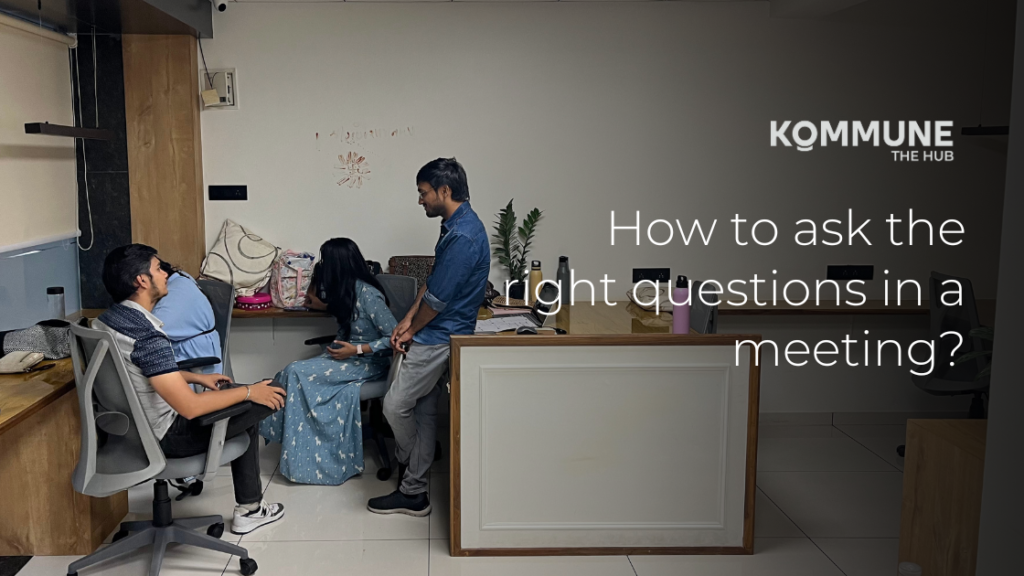Have you ever found yourself in a meeting, listening to an ongoing discussion, but felt unsure about when and how to ask the questions that were swirling in your head? If so, this resource is just for you. We’ll help you understand how to ask the right questions in a meeting—a critical skill for promoting thorough discussions and productive outcomes.
Why does it matter?
Asking the right questions not only enhances your understanding but also stimulates thinking and promotes open dialogue within the team. Moreover, it can lead to innovative ideas, stronger team collaboration, and more effective problem-solving.
Below is a list of strategies to help you frame your questions effectively:
- Understanding your purpose: Before launching your question, be clear about why you’re asking it. Is it to gain information, to stimulate discussion, or to challenge a point of view?
- Being concise: Keep your questions short and to the point. This allows for quicker understanding and response from the participants.
- Creating an open environment: Frame your questions in a way that avoids blame, judgement or assumption. This encourages honest responses and promotes a more productive conversation.
Now that we’ve reviewed these foundational principles, let’s move on to explore specific techniques to ask effective questions in a meeting setting. Read on to enhance your meeting participation skillset, and become a more engaged and insightful contributor to your team’s discussions.
Here are some key activities that you can engage in to ensure you ask the right questions in a meeting:
- Prepare beforehand: An effective meeting requires pre-planning. Consider your team’s or project’s objectives, and identify key information that you need to understand better. Create a list of questions around these themes to guide your inquiry during the meeting.
- Listen attentively: Ensure you are fully engaged during the meeting. Attentive listening can highlight gaps in your understanding, inspire additional questions, and show your colleagues that you appreciate their perspectives.
- Reflect and Ask: Don’t rush to ask. Take a moment to reflect on the information provided, ensuring your question is informed, relevant, and helpful to the discussion—consider whether your question may even inspire others to think more deeply about the topic at hand.
The Importance of Your Question’s Structure
How you ask a question is almost as important as the question itself. It can often determine how willing and able your colleagues are to engage with your query.
| Do: | Don’t: |
|---|---|
| Keep it specific and concise | Ask vague or overly complicated questions |
| Use open-ended questions to foster discussion | Limit your question to a simple yes or no answer |
| Ask your question in a respectful and non-confrontational manner | Use your question as an opportunity to criticize or jump to conclusions |
By incorporating these practices into your meeting preparation and participation, you are likely to find that your questions are more impactful and lead to more valuable and enlightening discussions for all involved.


